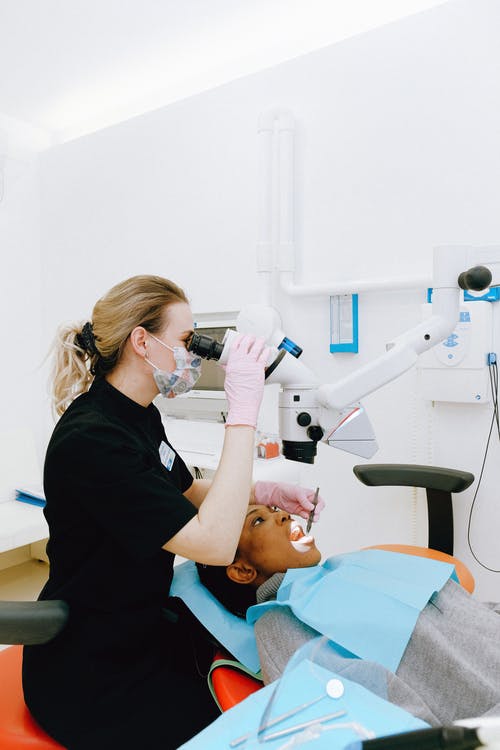Have you noticed that permanently dented areas in the solid surface of your teeth that result in tiny openings or holes? For sure you know what that is and you know that it’s harmful to your dental health.
Yes. Cavities could cause tooth decay. But how?
Tooth decay is caused by acids since it softens the enamel. These acids are produced when plaque bacteria disrupt down the sugar in your mouth. More so, this article will help you determine the important things you should know about tooth decay, it’s symptoms, causes, and treatment.
Tooth Decay: Overview
Tooth decay (dental caries) is destruction to a tooth that can transpire when decay-causing bacteria in your mouth make acids that attack the tooth’s external, or enamel. This can lead to a trivial hole in a tooth known as a cavity. It can cause pain, infection, and even tooth loss if tooth decay is not treated immediately.
Among the world’s most common health problems, tooth decay became one of them. They’re particularly mutual in children, teenagers, and older adults. People of all ages can get tooth decay as soon as they have teeth—from childhood and throughout their senior years.
Baby bottle tooth decay or where the young children are at risk for “early childhood caries,”, which is awful tooth decay in baby teeth. It allows decay-causing bacteria in the mouth to come into contact with the tooth’s root because many older adults experience declining gums, they can get deterioration on the unprotected root surfaces of their teeth.
Causes of Tooth Decay
-
Bacteria and Acid
Everybody has bacteria in their mouth., Bacteria in your mouth after eating or drinking foods with sugar turn sugar into acid. Soon after eating or drinking anything sugary, plaque starts forming on your teeth. This is why it is very important to do regular brushing.
-
Food Particles
The most likely to promote tooth decay are the foods that cling to your teeth. Major plaque promoters that contained sugars and most cooked starchy foods are, including milk, honey, raisins, dry cereal, hard candy, and bread.
To help lose weight or uphold the weight loss goal, some diets suggest eating several small meals each day. However, there is a need to remember that no matter what type of food, the acid in the food has more time to harm your teeth if you snack frequently.
-
Poor Oral Hygiene
The buildup and attack of plaque to the tooth enamel was primarily caused by not brushing the teeth regularly and properly. The patient’s failure to sustain good oral hygiene habits that trigger poor oral hygiene. More so, there is an important to do regular brushing and flossing of teeth to eliminate plaque and tartar from the teeth. Some foods and habits such as smoking can also upshot in dental diseases and poor oral hygiene.
-
Plaque formation
Plaque bonds to your teeth and the acid in plaque can gradually eat away tooth enamel. Enamel is a hard, protective coating on your teeth that guards in contradiction of tooth decay. The risk for decay increases as your tooth enamel weakens.
Symptoms of Tooth Decay
The symptoms of cavity rest on the condition or level of severity of the decay. They include:
-
Tooth Sensitivity To Sweets, Hot, Or Cold
The tooth’s enamel surface is one symptom of tooth decay and sensation. Extreme temperature variations cause teeth to enlarge and contract. Microscopic cracks may develop over time, allowing hot or cold sensations to ooze through to the nerves underneath the tooth enamel.
-
Pain While Biting
Dental decay is one of the sources of tooth pain, a cracked tooth, or an infection., If you have continuing pain regardless of the cause, it’s time to visit a dentist or endodontist for treatment. This shuddering symptom may be caused by decay, an unfastened filling, or a crack in the tooth. It’s also conceivable that there is damage to the pulp tissue within the tooth.
-
Visible Holes Or Pits In Your Teeth
A noticeable hole or pit in the affected tooth is another symptom of tooth decay. Sometimes the holes are only perceptible on a dental x-ray.
Treating Tooth Decay
Treatment of cavities is determined by how severe they are and your actual situation. Treatment options comprise:
-
Filling
Your dentist will likely recommend a filling if you grow tooth decay that has developed away from the procedure of eroding your tooth enamel and has shaped holes in your teeth.
Your dentist will eliminate the decayed material from the tooth and replace it with something else to reinstate the shape of the tooth when you get a filling. Fillings can be made of a combination of materials (amalgam) that may contain mercury or tooth-colored resins. Medical studies have revealed that amalgam fillings are safe for most people.
However, you can inquire your dentist about different choices of fillings in case you’re worried about the effect.
-
Root Canal
The death of your nerves has been caused by tooth decay. To save your tooth, your dentist will perform a root canal. They eliminate the nerve tissue, blood vessel tissues, and any corroded areas of your tooth. As needed, your dentist then ensures for infections and applies medication to the roots. They finally fill the tooth, and they might even put a crown on it.
-
Early Stage-Filling
If your dentist distinguishes a tooth cavity in its early stage, a fluoride treatment may restore your tooth enamel and avoid extra decay.
-
Crown
Your dentist may place a custom-fit cap over your tooth for more severe decay to substitute its natural crown. Your dentist will eliminate decayed tooth material before starting this process.
Prevention Of Tooth Decay
To avoid cavities and tooth decay, good oral and dental hygiene can help you. Here are some pieces of advice to aid avoid cavities. Ask your dentist which tips are the best fit for you.
After eating or drinking, you must brush with fluoride toothpaste.
- Rinse your mouth thoroughly.
- Visit your dentist regularly.
- Dental Sealants are recommended.
- Frequent snacking and sipping should be prevented
- Eat tooth-healthy foods
- Fluoride treatments should be considered.
Also, don’t forget to visit your dentist for regular teeth cleaning at least twice per year. This consents you to get treatment for any problems your dentist discovers, and it will help preclude future dental problems.






















